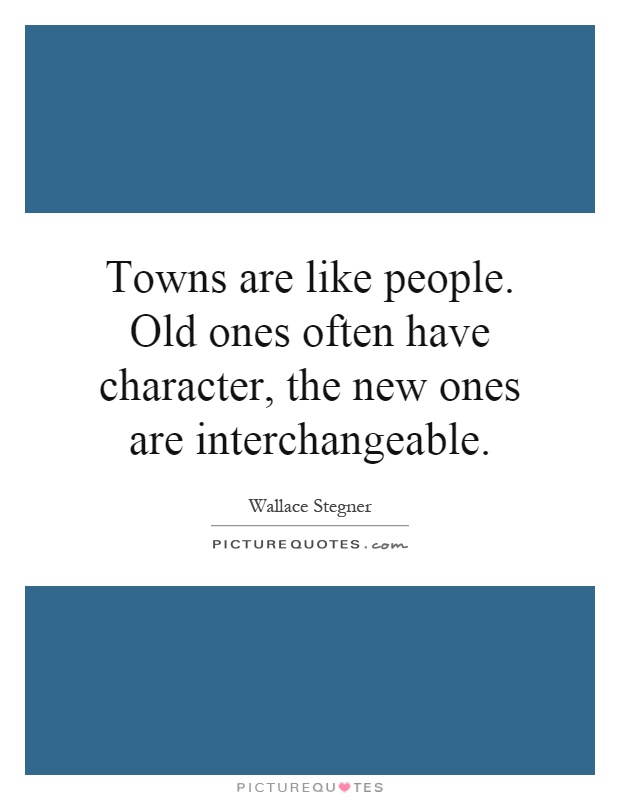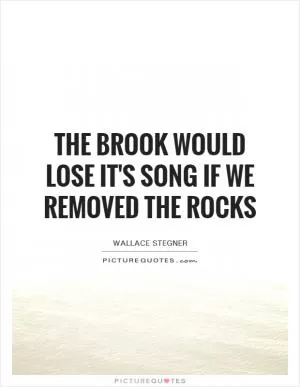Towns are like people. Old ones often have character, the new ones are interchangeable

Towns are like people. Old ones often have character, the new ones are interchangeable
In the context of Wallace Stegner's work, the quote "Towns are like people. Old ones often have character, the new ones are interchangeable" holds a significant meaning. Stegner, a renowned American writer known for his exploration of the American West and its landscapes, often delved into the complexities of human relationships and the impact of environment on individuals. This quote can be seen as a reflection of Stegner's belief in the importance of history, tradition, and individuality in shaping both towns and people.Stegner's writing often focuses on the unique character of the American West, with its rugged landscapes, small towns, and close-knit communities. He believed that the history and traditions of these towns were what gave them their character and made them distinct from one another. In his novels, such as "Angle of Repose" and "Crossing to Safety," Stegner explores the ways in which the past influences the present and shapes the identities of individuals and communities.
Old towns, with their historic buildings, traditions, and stories, are like people who have lived rich and full lives. They have a sense of history and a depth of character that sets them apart from newer, more generic towns. These old towns have a sense of place and a connection to the land that is irreplaceable. They have a soul, a spirit, that cannot be replicated in a new town built from scratch.
On the other hand, new towns are often built quickly and without much thought to their history or character. They are designed for efficiency and convenience, with little regard for the unique qualities that make a town special. These new towns can feel sterile and impersonal, lacking the charm and personality of older towns. They are like people who have not yet had the chance to develop their own identity, blending in with the crowd rather than standing out.












 Friendship Quotes
Friendship Quotes Love Quotes
Love Quotes Life Quotes
Life Quotes Funny Quotes
Funny Quotes Motivational Quotes
Motivational Quotes Inspirational Quotes
Inspirational Quotes